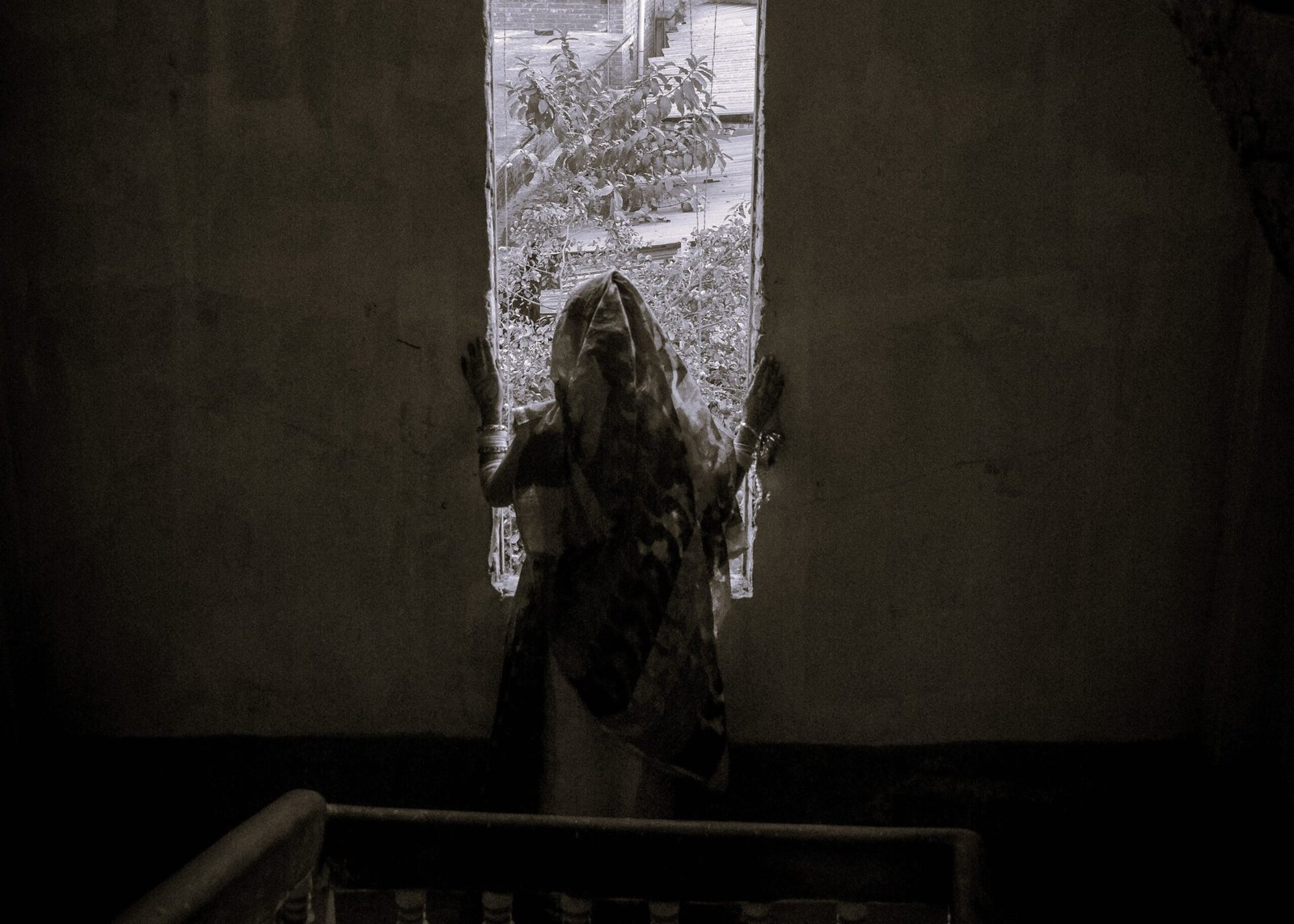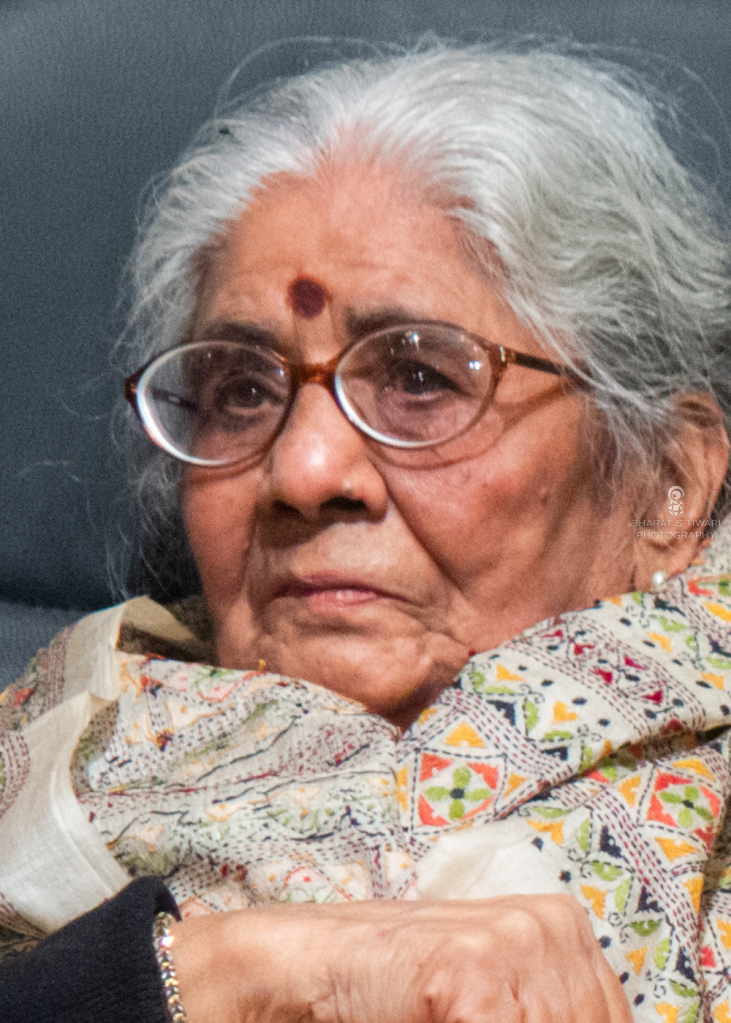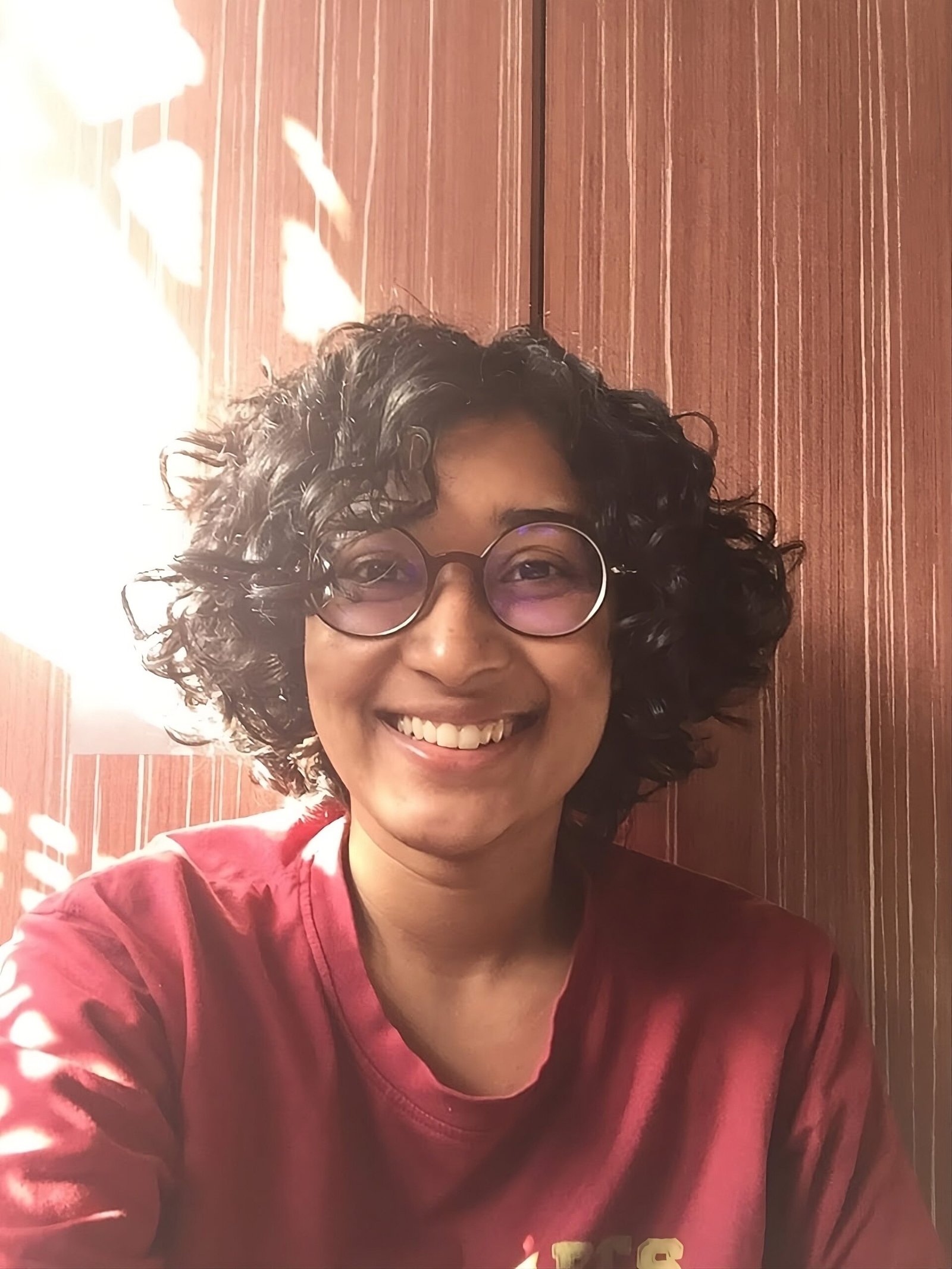
Placed second in the Mozhi Prize 2023
SOMA Bua is old.
Soma Bua has been abandoned.
Soma Bua is lonely.
Soma Bua’s young son died years ago, and her own youth passed with him. Her husband was so stricken with grief at the loss of their son that he renounced his wife and household to become an ascetic, and there wasn’t a soul in the family who could lighten her lonesomeness. In the twenty years since, no challenge had presented itself to the monotony of her life and everything continued unchanged. Every year, for one month out of twelve, her husband would come and stay with her. But, she had never looked forward to his visits, nor did she ever pine for him in his absence. In fact, for the duration of her husband’s stay, she would become even more listless; the spontaneous flow of her everyday life dulled as it caught on the hook of his unfeeling manner. All her social comings and goings would halt, albeit temporarily, despite which it never occurred to Sanyasiji Maharaj to offer her the comfort of a tender word or two from which she could draw succour during the eleven months of his absence. In such circumstances, Bua consoled herself by living vicariously through her neighbours. Whatever the occasion, be it a tonsure, the sixth-day naming rituals of an infant, or the sacred thread ceremony, whether a wedding or a funeral, Bua would work her fingers to the bone, having adopted the neighbours as her own.
It was one of those days when Bua’s husband was home on one of his annual visits, and there had just been some heated back-and-forth between them. Bua was sitting in the courtyard, sunning herself, kneading some oil from a little bowl into her hands and muttering to herself. The enforced lull of this one month had slowed down all the organs of her body, with the sole exception of her tongue, which had been rendered surplus vigour. Just then, holding a ragged sari and some papads, Radha Bhabhi came downstairs.
‘What’s the matter, Bua? Why are you muttering to yourself? Did Sanyasiji Maharaj say something again?’
‘Arre, he sulks whenever I go anywhere! He doesn’t like it! Yesterday, Kishorilal from the town square held the tonsure ceremony of his son, and the whole community was invited. I could tell, of course, that he invited everyone to such a minor ceremony just to show off his wealth, but his young daughters-in-law couldn’t manage the preparations, so I went there early. And wouldn’t you know it…’ As she spoke, Bua slid closer to Radha and, taking the papad from her hands, began laying them out to dry. ‘Not a single thing was being done properly. Now, if there were elders in the house, they could’ve guided them, or perhaps someone who has done this sort of thing before. The singing ladies were crooning wedding songs at a child’s tonsure—my stomach nearly burst with laughter.’ This memory seemed to soothe the hurt and anger of Bua’s earlier argument with her husband.
Returning to her usual manner, she continued, ‘And a strange sight when I looked towards the kitchen. The samosas were undercooked and so many had been made that everyone could’ve been served twice over, whereas there were so few gulab jamuns that not even the first lot of guests could be served! I immediately sifted some flour and made some more gulab jamuns. The two daughters-in-law and Kishorilal were so grateful, what can I say? They kept saying, “Amma, if you hadn’t been here today, we would’ve been so embarrassed. Amma, you saved our honour today!” I told them, “Oh, come now, if we can’t rely on our own people during such times, who else can we rely on?” It’s just that these days I need to take care of my husband’s needs as well, or I would’ve gone there much earlier.’
‘So why is Sanyasiji Maharaj in such a bad mood? He doesn’t like your socialising, Bua?’
‘Well, he doesn’t like it if I go anywhere at all, and besides, yesterday, there was no invitation as such from Kishori. Now, listen, who waits for an invitation from one’s own family? And those folks think of me as they would their own mother. Otherwise, why would they turn over the kitchen and pantry so readily to me? But how do I explain all this to my husband? He started saying, “You go around sticking your nose in other people’s business even when you’re not wanted.” And just like that, Bua was reminded of his unkind words, whose ire had broken on her like a harsh cloudburst not too long ago. The memory made her eyes well up again.
‘Arre, why do you cry, Bua? Everyone has these little quarrels. Sanyasiji Maharaj only stays for a month, just let him talk, what else?’
‘That I do, but it hurts to think that even though he’s only here for a month, he never says anything nice. He doesn’t like me to visit others, but you tell me, Radha, for eleven months of the year, he is in Haridwar. He doesn’t have much care for clan and kinship, but don’t I have to observe these relationships? How will it look if I too sever ties with everyone? I keep telling him that if he made his vows to me, he should stay with me till the end. But that he is unable to do. He will collect all the religious merit, he will gain all the esteem, and I should just lay around here, all alone, chanting his name, pining for him? And on top of that, if I go here or there, he finds that hard to accept…’ And Bua burst into sobs.
Radha said consolingly, ‘Don’t cry, Bua. I think he was upset because you went over without an invitation.’
‘Those poor things were so overwhelmed by the hubbub of the ceremony that they forgot to invite me. So should I have stayed away in a huff? Who stands on such formality with family? I believe in love for one’s own people—if someone isn’t loving, let them send ten invitations and I still won’t go. But if someone shows me love, I’ll rush to them no matter what. If my own Harkhu had been alive and there was something that needed doing in his own home, do you think I’d sit around waiting for an invitation? I think of Kishorilal the same as Harkhu. My Harkhu isn’t with me anymore, so I fill my heart by taking care of others.’ So saying, Bua started to hiccup.
Radha began to gather the now dry papads and said as gently as she could, ‘Come now, Bua, look where you’ve taken the matter. Now calm yourself, I’ll toast some of these papads and you can tell me how they taste, all right?’ She took the papads upstairs.
***
After a week or thereabouts, Bua entered the home in high spirits and said to Sanyasiji Maharaj, ‘Did you hear, some girl from your brother’s in-laws’ family has gotten engaged into Bhagirathji’s family. The whole clan will come here for the wedding. Although we haven’t maintained relations with them after brother-in-law’s passing, after all, we are still their samdhis—your brother’s niece is marrying into their family. And they are sure to invite you! How could they not?’ And, beaming with pleasure, Bua started to laugh.
Sanyasiji’s unspoken disdain did hurt her feelings a little, but still her spirits remained high. She bustled about here and there looking for news of the wedding. Then, one day, she finally found out that her relatives had indeed arrived in town. And preparations were in full swing. There would be a grand feast for the whole community—it was to be a glittering celebration. After all, both sides were wealthy.
‘Who knows if we’ll even get an invitation or not? Brother-in-law passed away twenty-five years ago and we’ve had no real relationship with his side of the family since. And who do I have to maintain these ties? This is the responsibility of the men of the house, and I am without a man despite having a husband.’ So fretting, a cold sigh escaped Bua’s heart.
‘Oh, come now, Bua! How can your name not be on the list? After all, you are a samdhi. Relationships don’t die just because people have passed, do they?’ said the elder daughter-in-law, while grinding some dal.
‘It’s there, Bua, your name. I saw the entire list,’ said the widowed sister-in-law.
Without rising from her seat, Bua slid a few inches forward and asked eagerly, ‘You saw my name on the list with your own eyes? Yes, the name should be on it. But with these modern customs, who knows, they may not include us.’ And without waiting another moment, Bua set off from there. Upon reaching her house, she went straight upstairs to Radha Bhabhi’s rooms—’Now, listen, Radha, you know what to gift a bride according to the latest fashions, don’t you? After all, they are important relatives, and wealthy ones too. I couldn’t possibly go empty-handed. But I am old-fashioned, so you tell me, what should I gift them? There’s no time to get anything made, only two days to go, so I’ll just have to get something ready-made.’
‘What would you like to gift her? Jewellery, clothes, a sindoor pot, or perhaps some other silver things?’
‘I have no idea. I’ll get you what money I have, and you can go buy whatever you see fit. It should make a good impression, that’s all. Well, let me first see how much money I have.’ And with unsteady steps, Bua made her way downstairs.
She rooted about among a few bundles of clothes and took out a small trunk. She unlocked it. Rummaging inside, she found a small box. Opening it carefully, she saw there were seven rupees in change, as well as a ring. Bua had expected there might be more, but when she saw there were only seven rupees, she fell into thought. In a wealthy household like that of her samdhis, such a small amount wouldn’t do to even fix a bindi on someone’s forehead. Bua’s gaze landed on the ring. It was the sole keepsake she had of her departed son. She hadn’t been able to give up her sentimental attachment to this ring even in times of dire financial need. Even now, as she lifted it up in her hands, her heart skipped a heavy beat, but she, nevertheless, tied the ring and a sum of five rupees into a knot in the corner of her sari pallu. Then she closed the trunk and climbed upstairs once again, but her high spirits had dimmed somewhat such that each step felt more leaden than the last.
She said to Radha, ‘There wasn’t much money, my dear. And how could it be otherwise? I have no one to earn a living for me. The little room brings me some rent, but that barely covers two square meals a day.’ And Bua began to cry.
Radha said, ‘Oh Bua, I’m so sorry but my purse strings are a bit tight at the moment, or I would’ve helped. But, look, why are you worrying about all this gift-giving in the first place? These customs are not important these days.’
‘No, Radha, they are important people. It’s been twenty-five years but they haven’t forgotten us; how could I possibly go empty-handed? No, no, I would sooner skip the wedding itself.’
‘So skip it! Good riddance, and anyway, with so many guests milling about they wouldn’t even know if you’re there or not!’ Radha said, offering a neat little solution to the entire dilemma.
‘But they’ll be deeply offended. If the whole town attends and I, despite being a samdhi, don’t? They’ll think that I’ve cut them off after brother-in-law’s passing. No, no, you had better sell this ring.’ And Bua undid the knot of her sari and placed an old-fashioned ring in Radha’s hand. And then she said in a pleading tone, ‘You keep going to the bazaar, don’t you? Sell this ring and buy whatever gift you think appropriate. Just take care that it keeps my honour, that’s all.’
Later, when Bua heard the bangle-seller’s cry from the street below, her gaze went right to the worn, dirty bangles on her wrist. She was to visit her relatives the following day; so what if she didn’t have jewellery, she could at least wear some pretty glass bangles. But an inarticulate shame slowed her steps, for what if someone saw her? The very next moment, however, as if having overcome this weakness, she went out the back door and spent a full rupee on a clutch of red and green bangles. But, for the remainder of the day, she kept her arms hidden in the folds of her sari.
That evening, Radha Bhabhi brought Bua a silver sindoor pot, a sari and some cloth for a matching blouse. Bua was gratified with the purchases and, casting her mind ahead, she imagined with great pleasure handing over these gifts and her samdhi bewailing their past estrangement and welcoming their touching reunion. Bua no longer felt the sting of having to sell the ring. She went to a shop nearby and bought one anna’s worth of yellow pigment and dyed her sari that night. She couldn’t wear a white sari to a wedding now, could she? That night as she slept, her mind raced towards morning.
The following day, all the cooking was done by nine in the morning. When she inspected her dyed sari, she felt it didn’t look quite right. She went upstairs to Radha: ‘Now, listen, Radha, when you wear a dyed sari it looks quite stylish, it sparkles, but this sari looks quite dull?’
‘That’s because you didn’t starch it, Amma, even a pinch would’ve made a difference. Here, apply a little now and it should be fine. When do you need to be there?’
‘Oh, don’t get me started on these modern folks, they wait until the last minute to invite you. The muhurat is at five in the evening, so I’ll probably go around sometime during the day.’
Radha smiled to herself.
Bua applied some starch to her sari and hung it out to dry. Then she took out a tray and a small crocheted doily made when she herself was a young woman. On the tray she arranged the sari, blouse, the sindoor pot, one coconut and some sweets, and then she showed it to Radha.
Sanyasiji Maharaj had been watching these preparations all morning, and since the previous evening, continuing into the present, he had advised Bua some twenty-five times that if nobody showed up with an invitation she was not to go as it wouldn’t look right. Each warning made Bua retort with confidence, ‘Do you think I’m crazy to go if I’m not invited? Neighbour Nanda saw our names on the invitee list with her own eyes, and, besides, why wouldn’t we be invited? You think they’ll invite sundry townsfolk but not their own samdhis?’
Around three in the afternoon, seeing Bua pace to and fro uneasily on the terrace, Radha Bhabhi called out, ‘Didn’t you go yet, Bua?’
Startled, Bua asked, ‘What time is it? What’s that, three? It’s so hard to tell in winter…I mean, it’s only three but the sunlight has waned from the terrace as if it were dusk.’ Then suddenly, as if only just realising that this was not, after all, an answer to Radha’s question, Bua said in somewhat cooler tones, ‘The muhurat is only at five. If I decide to go, I’ll probably go around four, it’s only three now.’ She made sure to add a measured hint of nonchalance to her voice.
She turned with a longing gaze towards the street below and, behind her, a dhoti hung drying on a clothesline, starched and sprinkled with mica dust. Some stray kernels of mica lay strewn about the terrace, sparkling in the sunlight, in much the same way that Bua’s face lit up whenever she spied someone entering their street below.
In the fading twilight of seven o’clock, Radha looked up; she saw a dim silhouette, huddled against the wall of the terrace, face turned towards the street. Radha was overcome with emotion. She didn’t ask any questions; she simply said, ‘Bua, what are you doing out here in the cold? Won’t there be any dinner tonight, it’s past seven?’
Like a person suddenly waking up from sleep Bua asked, ‘What did you say, it’s seven?’ Then, as if she was speaking to herself, ‘But how can it be seven already, the muhurat was at five?’ And then, coming to terms with the situation all at once, she said in carefully controlled tones, ‘Dinner? Oh, that’s no bother, I’ll see to it right away. It’s only for two people, after all, nothing to it.’
Bua took down the now-dry sari from the clothesline. Once downstairs, she smoothed and folded it and then slowly removed all the bangles from her wrist. She took all the carefully arranged gifts from the tray and put them away with deliberate care into her sole trunk.
And then, with an extinguished heart, she lit the gas stove.

The Lonely Woman, by Mannu Bhandari, translated from Hindi by Mithila R
Translator’s note: Mannu Bhandari’s Akeli, published in 1963, is a short story about an elderly woman called Soma, whose son is long dead and whose husband abandons her to become an ascetic. In her loneliness, she lives vicariously through her neighbours, turning up uninvited to gatherings and celebrations. Much of the story revolves around her excitement and anticipation of an upcoming wedding, to which she wonders if she will get an invitation. The quietly devastating ending is made more cruel by its understatement. Bhandari’s restrained prose detonates small bombs throughout the story, their lit fuses smouldering underneath the sentences.
Bhandari’s evocation of a rural or semi-urban setting in this story is remarkably deft, using kinship terms to sketch out not just a community but also a worldview that places these relationships at the centre of an individual’s life. In many societies, a woman’s life and purpose are defined by their relationships with the men around them. But what is a woman to do if the men in her life are absent? Who is she for? Soma Bua is just such a woman, with neither son nor husband, who nonetheless wants to be a person in the world. Hindi fiction, up until that point, was yet to develop an idiom for this alienation, which scholars will tell us is a modern idea but which many women in patriarchal societies will recognise as perhaps an everyday reality. What would alienation look like if described by women? The Nayi Kahaani movement broke from existing traditions to present stories of urban anomie but it was Mannu Bhandari, above all others, who harnessed Nayi Kahaani’s concerns to present astonishingly vivid portraits of complex women and their complicated inner lives.





